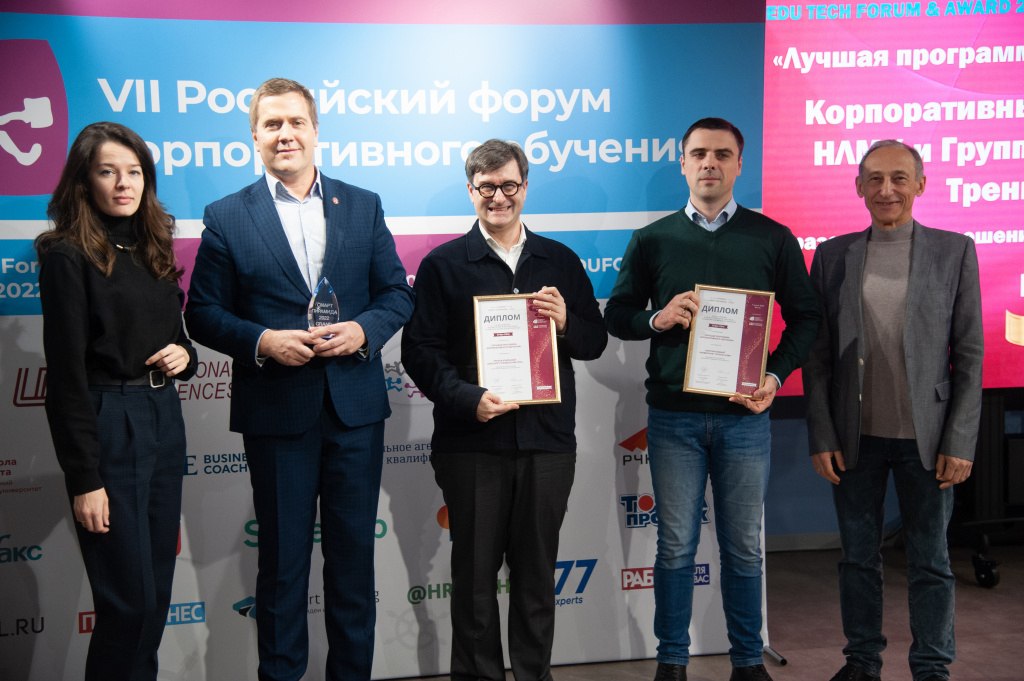
Meta-competencies: Knowledge about knowledge
Expert's column
77
What are meta-competencies? How do they aid learning? What influences their development? You will learn about this fr om the article by Nadezhda Novikova, Project Manager of the Educational Cycle Management department at NLMK Group Corporate University.
What are meta-competencies?
There are several main activities that we engage in throughout our lives: play, learning, work and communication. Through playing, studying, doing any kind of work, and communicating with others we growth spiritually, acquire knowledge, develop skills, and enrich our experience. To succeed in any activity, one needs to have specific knowledge or skills. For example, in games – follow the rules, in communication – be able to transmit and perceive information, pay attention to tone, gestures, facial expressions. In work, too, everything is pretty straightforward: one needs to have certain knowledge and skills to achieve positive results. In training – to set goals, use various methods and means to acquire knowledge, skills and abilities.
Here is the question: what competencies should a person have in order to be equally successful in different types of activities? This is wh ere the term “meta-competence” comes into play. In a broader sense, competencies are a set of knowledge, skills, and attitudes that are necessary to perform an activity. Meta-competencies are universal, flexible competencies that help people quickly adapt to new conditions. In case of corporate training, for example, well-developed meta-competencies help an employee set learning goals, organize training processes, follow the determined trajectory, and transfer the acquired knowledge and skills into their work.
Thus, meta-competencies have several components:
- Motivational and value-based: I understand the value of self-development and self-regulation;
- Cognitive: I know my intellectual abilities and limitations in solving a particular problem;
- Activity-based: I am able to focus my attention on the problem, plan the process of solving it, predict risks and solve it;
- Reflexive: I can evaluate the information that was needed to solve the problem and assess the result of my activity.
Meta-competence is also the ability to cope with uncertainty, being lectured to or criticized. As you may have noticed, meta-competencies imply a sufficiently deep and continuously developed knowledge of oneself.
How to understand the level of your meta-competencies?
There is no single questionnaire or test that would allow a comprehensive assessment of all meta-competencies. Individual sets of meta-competencies can be evaluated using Hogan tests, as well as in assessment centres with the help of tests to determine the IQ, motivation, etc.
How to develop meta-competencies?
The answer is both simple and tricky: in all the possible ways and throughout your entire life. And there is this caveat: one needs to do it deliberately.
Here are several ways to develop different meta-competencies in the context of an organization. Imagine the situation: one cannot accomplish a task. They take one, another, a third approach, but each time it turns out something far from the desired result.
What one can do here is to:
-
Understand the details of the desired result.
-
Evaluate own knowledge, skills and abilities. Are they enough to achieve the desired result?
-
Find a source of missing knowledge and skills. This can be a conversation with a more experienced colleague, a supervisor's advice, an online or face-to-face training course.
-
Try to act differently: apply new knowledge and skills.
- Evaluate the result. Think what could have been done differently.
All this seems obvious, but motivation is also important: what is the value and meaning of this activity? The answer to this question sometimes drives the achievement of your goal.
What influences the development of meta-competencies?
The answer is simple: confidence, or self-efficacy. Albert Bandura, one of the greatest psychologists of our time, believed that self-efficacy, that is, a person’s belief in the efficiency of their own actions, the expectation of success from their implementation, can influence their behaviour. In other words, people with high self-efficacy prefer to take on tasks that are more complex, set higher goals and strive harder to achieve them. German scientists Ralph Schwarzer and Matthias Jerusalem developed a self-efficacy assessment scale in 1981. A Russian version of the scale was adapted by a Russian psychologist Vladimir Romek.
What helps to increase self-efficacy?
- First, tangible success. It turns out that it is important to highlight and know exactly what you are good at.
- Second, observing someone else's successful experience.
- Third, verbal reinforcement: for example, praise from someone important to you. It works for a short time, but has a powerful effect.
- Fourth, an assessment of your emotional state. If you are feeling calm, angry or scared, it affects how you assess your abilities: in these states, one can underestimate or overestimate them.
To summarize, meta-competencies are, on the one hand, foundational skills that help us adapt existing knowledge and skills, and, on the other, something that can be developed throughout life. The development of meta-competencies requires focusing on goal setting, one’s actions and evaluation, as well as on the belief that the result will be positive.
Nadezhda Novikova, Project Manager, Educational Cycle Management, NLMK Group Corporate University
Our Newsletter is a totally fact-laden publication, containing information on new products, services and trends at NLMK Corporate University









